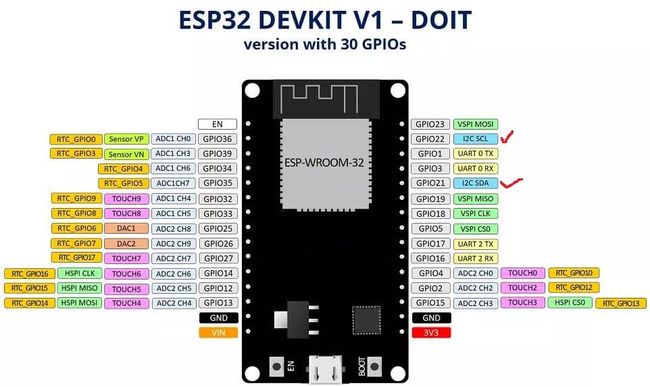- armbian 安装docker
itmanll
docker容器运维
aptlist--installed|grepdocker查看已安装的docker,用aptremove程序名卸载apt-getremovedocker-ce-cli卸载后在安装curl-fsSLhttps://get.docker.com|bash-sdocker–mirrorAliyundockerdocker-vDockerversion25.0.2,build29cf629
- docker3
疯癫的小珍呐
linux
数据持久化线上考试系统部署1.部署前端服务器1.#将资源上传到服务器scp-rdist/
[email protected]:~2.#创建基础容器,在服务器上systemctlstartdocker.servicedockerpullcentosdockerrun-it--namec0centos:latest/bin/bash3.#在容器中修改yum源rm-rf/etc/yum.repos.d/*
- 萤石云移动端sdk常见问题
做萤石二次开发的哈哈
音视频个人开发萤石云
使用萤石云的SDK时常会遇到各种问题首先,请先查看错误码文档,这能解决其中的绝大多数!!!如果没有找到,可以看看下方这些常见问题能否解决你碰到的情况。(iOS可以在打印日志中搜索opensdkerror找到错误码,android可以在Logcat日志中搜索handleerror找到错误码)如果未解决,请先自行运行Demo,确保问题能在Demo上复现。如不能复现,请参考Demo实现;如能复现,请提供
- 美业SaaS系统多门店收银系统源码-卡项升卡规则分享(1)
Boyi美业
java系统架构源代码管理php前端框架
美业管理系统源码博弈美业SaaS系统连锁多门店美业收银系统源码多门店管理/会员管理/预约管理/排班管理/商品管理/促销活动PC管理后台、手机APP、iPadAPP、微信小程序1、什么是卡项升卡?原价购买的卡项,正常状态下(未消耗完+未过期);可补差价,换成任意售价比原卡项高的卡项;无需判断新卡、老卡所包含的服务是否一致,只判断卡项差价及原卡状态;升卡成功后,原卡项剩余次数不可用。2、那些卡项可以【
- 美业SaaS系统多门店收银系统源码-【小程序】端功能列表分享
Boyi美业
小程序源代码管理java系统架构前端php
美业管理系统源码博弈美业SaaS系统连锁多门店美业收银系统源码多门店管理/会员管理/预约管理/排班管理/商品管理/促销活动PC管理后台、手机APP、iPadAPP、微信小程序博弈美业-小程序端功能列表功能模块子模块功能说明商城服务项目购买服务项目优惠次卡购买卡项家居产品购买家居产品预约顾客预约服务入口我的全部订单顾客查看以往所有订单我的卡包顾客已购买卡项查看优惠券优惠券详情购物车待购买商品
- java连锁美业收银系统源码-美业SAAS系统【手机APP端】管理功能/应用场景介绍
Boyi美业
智能手机java源代码管理前端框架uni-appios
博弈美业管理系统源码连锁多门店美业收银系统源码多门店管理/会员管理/预约管理/排班管理/商品管理/促销活动PC管理后台、手机APP、iPadAPP、微信小程序(需要系统演示视频可联系观看)▶店主/店长手机端:场景名称场景流程举例运营报表1、我想查询这个月收入了多少钱,其中卡项一共卖了多少2、我想了解门店当前卖得最好的客装产品是哪几款3、我想知道哪些美容项目是最受顾客欢迎的,哪些营收比较高4、合伙人
- 今日学习
杨浩康
今天的学习是语文第六单元学的14课《要下雨了》。数学学的退位减法两位数减一位数。中午的午写语文是第一单元的字。下午上的体育课和美术课。数学作业是口算题卡第34页35页都做语文的作业是抄写语文园地六的2.3.5项,还有导学练14课都写完。
- 新书速览|HTML5+CSS3 Web前端开发与实例教程:微课视频版
全栈开发圈
前端html5css3
《HTML5+CSS3Web前端开发与实例教程:微课视频版》本书内容《HTML5+CSS3Web前端开发与实例教程:微课视频版》秉承“思政引领,立德树人”的教育理念,自然融入多维度、深层次的思政元素,全面对标企业和行业需求;引入现代Web前端开发的核心技术,如Flex布局、Grid布局,以及人工智能编程插件,同时融入企业开发实践,确保学习内容与实际工作紧密相关。全书以一个完整案例为主线,结合综合项
- Java必知必会-基础篇
探索星辰大海
Java必知必会java开发语言
说明:《Java必知必会》是一档专为Java学习者设计的专栏,旨在帮助读者系统地掌握Java编程语言的核心知识,从基础语法到高级特性,从理论应用到实战演练,一站式解决你的Java学习难题。可在我的专栏里订阅,该专栏一共有15篇,本篇是第二篇。会先教会大家如何使用,并给出相应的练习题示例作业习题是帮助大家巩固所学内容,需要大家独立完成学完入门篇和基础篇就算掌握Java的常用基础知识了,下一篇开始学习
- 2018.11.04周检视
victoria李小薇
一周自省这一周我有哪些事情做的好?早睡坚持、佛会课程坚持这一周我有哪些事情做的不好?跑步没有坚持,胃炎症状,增重了。面护被忽略这一周我有哪些感悟、收获?自尊带来自律,无助带来叛逆。因為一個人的自尊水平越低,自律性就越差。佛学从入门到入境离执。财经课程有收获读书收获……三圈自问1、做那些事你觉得有意义?利他心2、做什么的时候觉得快乐?独乐乐不如众乐乐3、我最擅长做什么?高品质生活六、下周计划坚持早睡
- AIGC深度学习教程:Transformer模型中的Position Embedding实现与应用
玩AI的小胡子
embeddingtransformerAIGC人工智能
在进入深度学习领域时,Transformer模型几乎是绕不开的话题,而其中的PositionEmbedding更是关键。对于刚入门的朋友,这篇教程将带你深入了解PositionEmbedding是什么、它如何在Transformer中运作,以及它在不同领域中的实际应用。什么是PositionEmbedding?PositionEmbedding是Transformer模型中一种关键机制,用于弥补模
- 代码随想录day57 prim算法精讲 kruskal算法精讲
咸鱼的自我变强之路
代码随想录_刷题算法
代码随想录day57prim算法精讲kruskal算法精讲卡码网:53.寻宝代码随想录#include#include#includeusingnamespacestd;intmain(){intv,e;intx,y,k;cin>>v>>e;vector>grid(v+1,vector(v+1,10001));while(e--){cin>>x>>y>>k;grid[x][y]=k;grid[y]
- 2021-06-02「更新的第一个拍摄设备GoPro9到了」
鱼丸v粗面
日常记录天气:多云13~29℃北风3-4级(北京大兴)关于生活今天,我期待好久的GoPro9终于到了,活动价格2898元购买官方标配,自己配了一些配件:一块电池+128G内存卡+自拍杆+背包夹+防风收音海绵,加起来一共三千多了。可心疼了。不过配件今天都还没到,还要等等。本来今天是个开心的日子,但是因为拼多多太过分了,17天了盗图投诉还不审核不处理,打电话给客服,直接跟机关枪一样不停的说,让我继续等
- HTML 标签大合集:一文入门
彼方᭄゛ঞ
HTML基础html前端
导语欢迎来到我们关于HTML标签的全面指南!如果你是网页设计的新手,或者只是想快速回顾一下HTML的基础知识,那么你来对地方了。HTML(超文本标记语言)是构建网页的基石,它定义了网页的结构和内容。在本文中,我们将通过一系列示例来探索HTML的核心元素,帮助你理解如何使用它们来创建引人注目的网页。块级元素与内联元素块级元素块级元素通常用于创建页面结构的“块”,它们在页面中占据整行显示。:块级元素,
- redis一文入门
鲨鱼学python
redis数据库python
Redis是一个开源的内存数据结构存储系统,它可以用作数据库、缓存和消息代理。Redis支持多种数据结构,包括字符串、哈希、列表、集合和有序集合。它非常高效,广泛用于需要快速读写操作的应用场景。一、redis启动1、启动Redis服务器打开命令提示符(CMD)窗口,并进入Redis安装目录下的src文件夹。然后运行以下命令来启动Redis服务器:redis-server2、启动redis客户端另打
- 超越基础:Visual Basic在科学计算与数据分析的革新应用
2401_85761003
数据分析microsoftwindows
标题:超越基础:VisualBasic在科学计算与数据分析的革新应用VisualBasic(VB),最初以其易于学习和使用而闻名,常被视为入门级编程语言。然而,VB的潜力远不止于简单的应用程序开发。在科学计算和数据分析领域,VB通过其强大的编程能力和对复杂算法的支持,展现出了其独特的应用价值。本文将探讨VisualBasic在科学计算和数据分析中的应用,并提供实际代码示例。1.VisualBasi
- 很喜欢这个故事
小幸福的倩姐
很喜欢这个故事:因为它足够平常,足够简单有一次,我听他讲到他的一位朋友,做事情总是喜欢卡点儿。他坐火车的时候呢,每次都要等到检票口都没人了,才慢悠悠地朝闸机走去,他坐飞机的时候总是在值机广播的催促声中才拖着箱子款款走来。而这位侯哥呢,每次都会提前半个小时,甚至一个小时到火车站或者机场,他总笑话猴哥,说他太过于谨慎,去那么早浪费时间。这是完全不同的两笔账的算法。第一笔账,你站在现在看未来。那你当然就
- 反思我的负债是怎么形成的?
牛敏爱写作
我的生活从2008年到保险公司工作,办了信用卡第一张信用卡以后一步一步到今天叠入生活谷底,当然我不是说信用卡不好,信用卡在用钱时不用跟别人开口借钱,很方便。但是信用卡不适合不会计划、不会算账理财的人,花钱时刷着就走没有花现金的那种心痛和舍不都的感觉,有了信用卡以后胡乱投资、盲目的消费,后来信用卡越办越多,加上信用卡中心一直推荐分期,总之觉得反正自己没钱,分就分吧,拿一万元的本金分12个月来算,假如
- 绘画艺术丨今日教程:植物多肉 — 劳尔
教画画的小然
首先介绍一下工具:辉柏嘉绿盒油性120色,一支三菱UNI粉色13号,飞乐鸟彩铅纸32K,用到的颜色如下图,如果没有相同的彩铅可以找相近色,颜色不一定非要一模一样,画出明暗关系就好看了。色卡首先画出线稿,可以先画三个圆确定三朵多肉的大致位置,然后再细化叶瓣,多肉的叶瓣比较规则,线稿不难画。线稿首先用154浅蓝绿色打底,墨绿色267画出暗部。继续用黄绿色168画出大致明暗关系。进一步用154,162加
- 问题13:内容生产是无限的,真正的问题也是无限的吗?
迈克尔焦炭
有的是时候就会想:我们每天面对如此庞大的信息,让人应接不暇。那么内容生产是无限的,那么真正的问题是无限的吗?我们大家无论进入哪个领域,都要有一个入门的阶段,都要从头学起来。可能那些基础的问题就那么多,无论你怎么写,怎么生产,这些领域的入门知识也就是这些了。可能形式上会有很多不同,而实质性的东西还是不会变的。比如,经济学入门,不管哪本书讲,也是从需求供给、成本、生产要素等方面出发帮助读者培养经济学思
- 你有过被网速“囚禁”的经历吗?
西瓜甜甜啦
曾经在长达7、8个月的时间内,我就像是一只被网速“囚禁的鸟”——飞不高,看不远,走不快,那种无奈,那种束手无策,真的很让人崩溃……第一次发现自己的网速慢,是在2012年的光棍节。那天一个朋友要我帮她网购保暖内衣。正当朋友看好一套男式内衣时候,网速无比卡,网页怎么也打不开,无奈之下,我们只好刷新,谁知道等我们刷新完毕,重回刚才的那个页面,奇迹,不,杯具就这样产生了——刚刚还在的、那款心仪的内衣居然就
- Spring Cloud Consul入门:服务发现与配置管理的最佳实践
勤劳兔码农
springcloudconsul服务发现
SpringCloudConsul入门:服务发现与配置管理的最佳实践在微服务架构中,服务发现和配置管理是两个核心的需求。SpringCloudConsul作为一个开源的工具,为开发者提供了简单、高效的服务发现和配置管理方案。本文将详细介绍SpringCloudConsul的基础知识,并提供在服务发现与配置管理方面的最佳实践。一、什么是SpringCloudConsul?SpringCloudCon
- cesium全球视频纹理
yevtte2023
音视频
推荐:将NSDT场景编辑器加入你的3D开发工具链问题的起因是和一个群友一起讨论,怎么让地球的背景贴上视频,而且地球展开成平面之后,可以拖动实体位置由于之前几次示例都用了本地的图片(设置Cesium.Viewer的imageryProvider属性)来作背景
- 向量数据库入坑:传统文本检索方式的降维打击,使用 Faiss 实现向量语义检索
soulteary
为了不折腾而去折腾的那些事faiss向量检索语义检索文本检索搜索引擎
在上一篇文章《聊聊来自元宇宙大厂Meta的相似度检索技术Faiss》中,我们有聊到如何快速入门向量检索技术,借助MetaAI(FacebookResearch)出品的faiss实现“最基础的文本内容相似度检索工具”,初步接触到了“语义检索”这种对于传统文本检索方式具备“降维打击”的新兴技术手段。有朋友在聊天中提到,希望能够聊点更具体的,比如基于向量技术实现的语义检索到底比传统文本检索强多少,以及是
- android:configChanges 属性注意事项 翻转不起作用的问题
weixin_33774615
移动开发python
2019独角兽企业重金招聘Python工程师标准>>>转屏时,配置了android:configChanges="keyboardHidden|orientation"还是会调用oncreate,原来是因为没有配置screensize属性导致。如此这般,还是不起作用啊,原来5.1的还要添加上权限,如下:经历如此折腾,终于好了参考:http://blog.csdn.net/huiguixian/ar
- AdventureCreator学习笔记13:脸部表情
AlpacasKing
BlendShape设置在模型上添加Shapeable脚本,可以添加表情组,然后在表情组里可以添加表情。BlendShape设置表情设置在NPC脚本上,还需要添加表情,名字与表情组相同。表情设置使用表情可以在ActionList中添加新的Action,也可以直接写在对话文本中。使用表情嘴型设置对话时根据内容嘴型可以相应变化。首先在ACGameEditor的Speech选项卡开启Lipsyncing
- 《家庭教育促进法》解读(12)众人拾柴火焰高
愿我们顺利平安
点击上方蓝字,关注我们吧!坚持写作第七十三天今天继续为大家解读《家庭教育促进法》第三章国家支持。第二十九条家庭教育指导机构应当及时向有需求的家庭提供服务。对于父母或者其他监护人履行家庭教育责任存在一定困难的家庭,家庭教育指导机构应当根据具体情况,与相关部门协作配合,提供有针对性的服务。第三十条设区的市、县、乡级人民政府应当结合当地实际采取措施,对留守未成年人和困境未成年人家庭建档立卡,提供生活帮扶
- 红楼梦第九回读书笔记 ——偶遇卡文,无论多难,还是要坚持
娟娟呀
第九回题目:训劣子李贵承申饬嗔顽童茗烟闹书房内容简介:第九回一半写贾宝玉上学;一半写顽童闹学堂。展示一幅家庭教育、学校教育乃至整个社会教育失败的画卷。读书笔记:这一回看题目,应该是很简单读过去的,我却遇到了卡文。所以迟迟写不下去,卡文的原因是,理不清里面的人物,自小我就害怕古装剧和国外影片,因为很多人老似相近,分辨不出。其实这是一个心理障碍,没有用心去看,每个角色都是各有千秋的。直到今天看到一张,
- Android CTS兼容性测试工具介绍
闲暇部落
android
参考官方文档:兼容性测试套件|AndroidOpenSourceProject参考文章:Android---一篇带你搞懂CTS_androidcts-CSDN博客
- 2018.4.21【Day279】今日所读:《Monsters University》P252-316
_原野
图片发自AppThingsaregettingalittledifferentfromwhatIthought.Mikewonthecompetition.ButatlasthefoundthetrickthatSulleyusedasaguaranteeoffinalvictory.Hewasdesperatethatthemanhetrusteddidn'ttrusthimbecauseofh
- ztree设置禁用节点
3213213333332132
JavaScriptztreejsonsetDisabledNodeAjax
ztree设置禁用节点的时候注意,当使用ajax后台请求数据,必须要设置为同步获取数据,否者会获取不到节点对象,导致设置禁用没有效果。
$(function(){
showTree();
setDisabledNode();
});
- JVM patch by Taobao
bookjovi
javaHotSpot
在网上无意中看到淘宝提交的hotspot patch,共四个,有意思,记录一下。
7050685:jsdbproc64.sh has a typo in the package name
7058036:FieldsAllocationStyle=2 does not work in 32-bit VM
7060619:C1 should respect inline and
- 将session存储到数据库中
dcj3sjt126com
sqlPHPsession
CREATE TABLE sessions (
id CHAR(32) NOT NULL,
data TEXT,
last_accessed TIMESTAMP NOT NULL,
PRIMARY KEY (id)
);
<?php
/**
* Created by PhpStorm.
* User: michaeldu
* Date
- Vector
171815164
vector
public Vector<CartProduct> delCart(Vector<CartProduct> cart, String id) {
for (int i = 0; i < cart.size(); i++) {
if (cart.get(i).getId().equals(id)) {
cart.remove(i);
- 各连接池配置参数比较
g21121
连接池
排版真心费劲,大家凑合看下吧,见谅~
Druid
DBCP
C3P0
Proxool
数据库用户名称 Username Username User
数据库密码 Password Password Password
驱动名
- [简单]mybatis insert语句添加动态字段
53873039oycg
mybatis
mysql数据库,id自增,配置如下:
<insert id="saveTestTb" useGeneratedKeys="true" keyProperty="id"
parameterType=&
- struts2拦截器配置
云端月影
struts2拦截器
struts2拦截器interceptor的三种配置方法
方法1. 普通配置法
<struts>
<package name="struts2" extends="struts-default">
&
- IE中页面不居中,火狐谷歌等正常
aijuans
IE中页面不居中
问题是首页在火狐、谷歌、所有IE中正常显示,列表页的页面在火狐谷歌中正常,在IE6、7、8中都不中,觉得可能那个地方设置的让IE系列都不认识,仔细查看后发现,列表页中没写HTML模板部分没有添加DTD定义,就是<!DOCTYPE html PUBLIC "-//W3C//DTD XHTML 1.0 Transitional//EN" "http://www.w3
- String,int,Integer,char 几个类型常见转换
antonyup_2006
htmlsql.net
如何将字串 String 转换成整数 int?
int i = Integer.valueOf(my_str).intValue();
int i=Integer.parseInt(str);
如何将字串 String 转换成Integer ?
Integer integer=Integer.valueOf(str);
如何将整数 int 转换成字串 String ?
1.
- PL/SQL的游标类型
百合不是茶
显示游标(静态游标)隐式游标游标的更新和删除%rowtyperef游标(动态游标)
游标是oracle中的一个结果集,用于存放查询的结果;
PL/SQL中游标的声明;
1,声明游标
2,打开游标(默认是关闭的);
3,提取数据
4,关闭游标
注意的要点:游标必须声明在declare中,使用open打开游标,fetch取游标中的数据,close关闭游标
隐式游标:主要是对DML数据的操作隐
- JUnit4中@AfterClass @BeforeClass @after @before的区别对比
bijian1013
JUnit4单元测试
一.基础知识
JUnit4使用Java5中的注解(annotation),以下是JUnit4常用的几个annotation: @Before:初始化方法 对于每一个测试方法都要执行一次(注意与BeforeClass区别,后者是对于所有方法执行一次)@After:释放资源 对于每一个测试方法都要执行一次(注意与AfterClass区别,后者是对于所有方法执行一次
- 精通Oracle10编程SQL(12)开发包
bijian1013
oracle数据库plsql
/*
*开发包
*包用于逻辑组合相关的PL/SQL类型(例如TABLE类型和RECORD类型)、PL/SQL项(例如游标和游标变量)和PL/SQL子程序(例如过程和函数)
*/
--包用于逻辑组合相关的PL/SQL类型、项和子程序,它由包规范和包体两部分组成
--建立包规范:包规范实际是包与应用程序之间的接口,它用于定义包的公用组件,包括常量、变量、游标、过程和函数等
--在包规
- 【EhCache二】ehcache.xml配置详解
bit1129
ehcache.xml
在ehcache官网上找了多次,终于找到ehcache.xml配置元素和属性的含义说明文档了,这个文档包含在ehcache.xml的注释中!
ehcache.xml : http://ehcache.org/ehcache.xml
ehcache.xsd : http://ehcache.org/ehcache.xsd
ehcache配置文件的根元素是ehcahe
ehcac
- java.lang.ClassNotFoundException: org.springframework.web.context.ContextLoaderL
白糖_
javaeclipsespringtomcatWeb
今天学习spring+cxf的时候遇到一个问题:在web.xml中配置了spring的上下文监听器:
<listener>
<listener-class>org.springframework.web.context.ContextLoaderListener</listener-class>
</listener>
随后启动
- angular.element
boyitech
AngularJSAngularJS APIangular.element
angular.element
描述: 包裹着一部分DOM element或者是HTML字符串,把它作为一个jQuery元素来处理。(类似于jQuery的选择器啦) 如果jQuery被引入了,则angular.element就可以看作是jQuery选择器,选择的对象可以使用jQuery的函数;如果jQuery不可用,angular.e
- java-给定两个已排序序列,找出共同的元素。
bylijinnan
java
import java.util.ArrayList;
import java.util.Arrays;
import java.util.List;
public class CommonItemInTwoSortedArray {
/**
* 题目:给定两个已排序序列,找出共同的元素。
* 1.定义两个指针分别指向序列的开始。
* 如果指向的两个元素
- sftp 异常,有遇到的吗?求解
Chen.H
javajcraftauthjschjschexception
com.jcraft.jsch.JSchException: Auth cancel
at com.jcraft.jsch.Session.connect(Session.java:460)
at com.jcraft.jsch.Session.connect(Session.java:154)
at cn.vivame.util.ftp.SftpServerAccess.connec
- [生物智能与人工智能]神经元中的电化学结构代表什么?
comsci
人工智能
我这里做一个大胆的猜想,生物神经网络中的神经元中包含着一些化学和类似电路的结构,这些结构通常用来扮演类似我们在拓扑分析系统中的节点嵌入方程一样,使得我们的神经网络产生智能判断的能力,而这些嵌入到节点中的方程同时也扮演着"经验"的角色....
我们可以尝试一下...在某些神经
- 通过LAC和CID获取经纬度信息
dai_lm
laccid
方法1:
用浏览器打开http://www.minigps.net/cellsearch.html,然后输入lac和cid信息(mcc和mnc可以填0),如果数据正确就可以获得相应的经纬度
方法2:
发送HTTP请求到http://www.open-electronics.org/celltrack/cell.php?hex=0&lac=<lac>&cid=&
- JAVA的困难分析
datamachine
java
前段时间转了一篇SQL的文章(http://datamachine.iteye.com/blog/1971896),文章不复杂,但思想深刻,就顺便思考了一下java的不足,当砖头丢出来,希望引点和田玉。
-----------------------------------------------------------------------------------------
- 小学5年级英语单词背诵第二课
dcj3sjt126com
englishword
money 钱
paper 纸
speak 讲,说
tell 告诉
remember 记得,想起
knock 敲,击,打
question 问题
number 数字,号码
learn 学会,学习
street 街道
carry 搬运,携带
send 发送,邮寄,发射
must 必须
light 灯,光线,轻的
front
- linux下面没有tree命令
dcj3sjt126com
linux
centos p安装
yum -y install tree
mac os安装
brew install tree
首先来看tree的用法
tree 中文解释:tree
功能说明:以树状图列出目录的内容。
语 法:tree [-aACdDfFgilnNpqstux][-I <范本样式>][-P <范本样式
- Map迭代方式,Map迭代,Map循环
蕃薯耀
Map循环Map迭代Map迭代方式
Map迭代方式,Map迭代,Map循环
>>>>>>>>>>>>>>>>>>>>>>>>>>>>>>>>>>>>>>>>
蕃薯耀 2015年
- Spring Cache注解+Redis
hanqunfeng
spring
Spring3.1 Cache注解
依赖jar包:
<!-- redis -->
<dependency>
<groupId>org.springframework.data</groupId>
<artifactId>spring-data-redis</artifactId>
- Guava中针对集合的 filter和过滤功能
jackyrong
filter
在guava库中,自带了过滤器(filter)的功能,可以用来对collection 进行过滤,先看例子:
@Test
public void whenFilterWithIterables_thenFiltered() {
List<String> names = Lists.newArrayList("John"
- 学习编程那点事
lampcy
编程androidPHPhtml5
一年前的夏天,我还在纠结要不要改行,要不要去学php?能学到真本事吗?改行能成功吗?太多的问题,我终于不顾一切,下定决心,辞去了工作,来到传说中的帝都。老师给的乘车方式还算有效,很顺利的就到了学校,赶巧了,正好学校搬到了新校区。先安顿了下来,过了个轻松的周末,第一次到帝都,逛逛吧!
接下来的周一,是我噩梦的开始,学习内容对我这个零基础的人来说,除了勉强完成老师布置的作业外,我已经没有时间和精力去
- 架构师之流处理---------bytebuffer的mark,limit和flip
nannan408
ByteBuffer
1.前言。
如题,limit其实就是可以读取的字节长度的意思,flip是清空的意思,mark是标记的意思 。
2.例子.
例子代码:
String str = "helloWorld";
ByteBuffer buff = ByteBuffer.wrap(str.getBytes());
Sy
- org.apache.el.parser.ParseException: Encountered " ":" ": "" at line 1, column 1
Everyday都不同
$转义el表达式
最近在做Highcharts的过程中,在写js时,出现了以下异常:
严重: Servlet.service() for servlet jsp threw exception
org.apache.el.parser.ParseException: Encountered " ":" ": "" at line 1,
- 用Java实现发送邮件到163
tntxia
java实现
/*
在java版经常看到有人问如何用javamail发送邮件?如何接收邮件?如何访问多个文件夹等。问题零散,而历史的回复早已经淹没在问题的海洋之中。
本人之前所做过一个java项目,其中包含有WebMail功能,当初为用java实现而对javamail摸索了一段时间,总算有点收获。看到论坛中的经常有此方面的问题,因此把我的一些经验帖出来,希望对大家有些帮助。
此篇仅介绍用
- 探索实体类存在的真正意义
java小叶檀
POJO
一. 实体类简述
实体类其实就是俗称的POJO,这种类一般不实现特殊框架下的接口,在程序中仅作为数据容器用来持久化存储数据用的
POJO(Plain Old Java Objects)简单的Java对象
它的一般格式就是
public class A{
private String id;
public Str



